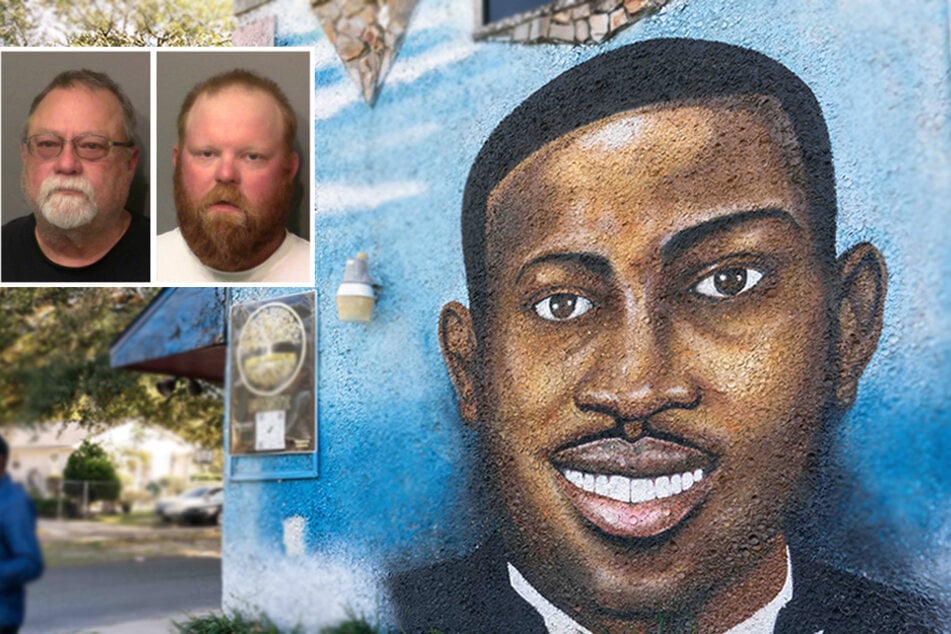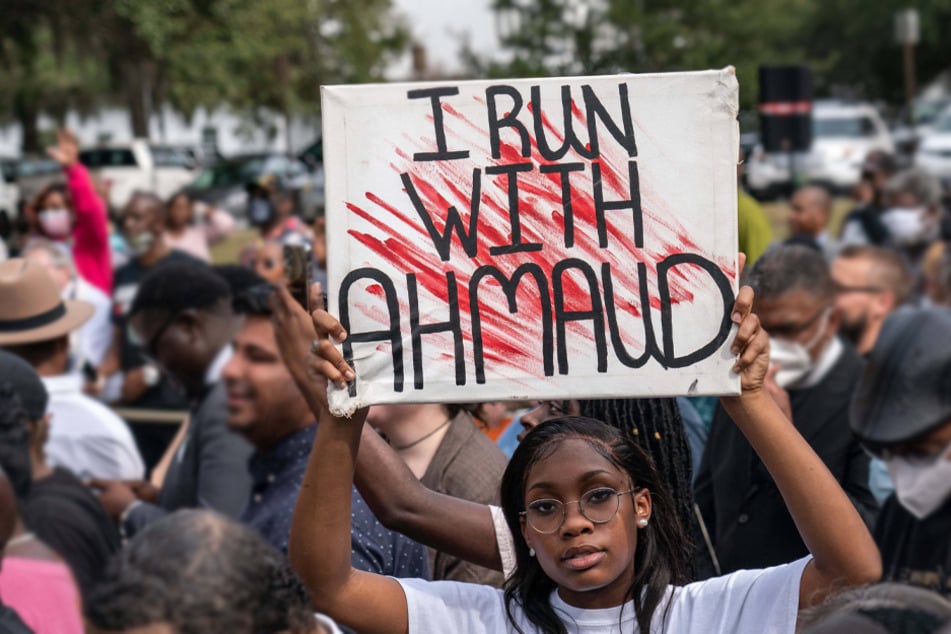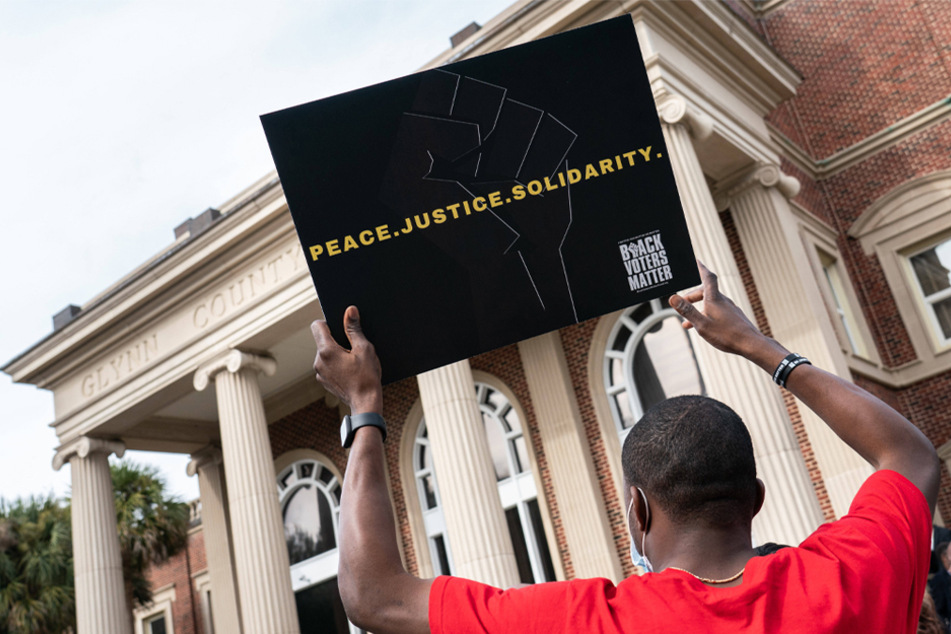Ahmaud Arbery killing: The men's fate is now in the jury's hands
Brunswick, Georgia – After hearing nearly 12 days of testimony, closing arguments, and rebuttals, the jury has been dismissed to deliberate the verdict of the three men being tried in the trial for the death of Ahmaud Arbery.

There are five different charges against Travis McMichael, Gregory McMichael, and William "Roddie" Bryan in this case, including: Malice murder, felony murder on four counts, aggravated assault on two counts, false imprisonment, and criminal intent to commit a felony.
All three men accused in this case have pled not guilty to each charge they face.
It's unclear how long it might take for the jury, which now has three alternates serving upon it, to come to a unanimous decision, as they have a plethora of evidence to process and instructions to consider.
Prior to dismissing the jury, Judge Timothy Walmsley instructed the jury on how to decide the verdicts for the three men on trial, and reminded them it's their sworn duty to decide the case based on the law given to them and the evidence shown throughout the trial.
Judge Walmsley also noted that a conviction of one defendant does not require the conviction of another.
Nearly an hour into the prosecution's closing argument rebuttal on Tuesday morning, the defense attorneys representing the McMichaels filed yet another motion for a mistrial. This time, it regarded an issue they had with the way the prosecution was explaining the law to the jury.
After hearing arguments from both sides, Judge Walmsley denied the motion, and the prosecution continued on with its rebuttal.
The prosecution makes its case

On Tuesday, state prosecutor Linda Dunikoski spoke to the jury for just under two hours prior to them being dismissed for deliberation, ending her arguments by hammering it home that each of the three men were guilty in the killing of Arbery.
"Remember party to a crime," Dunikoski said, while telling the jury that under Georgia state law, every party to a crime can be convicted as if they committed the crime themselves.
She argued that Bryan, who filmed the incident and testified that he had attempted to trap Arbery with his car numerous times prior to Travis McMichael's fatal shotgun blows that took the 25-year-old's life, was just as guilty of malice murder as the man who pulled the trigger.
The state prosecutor then told the jury, on the same note, Gregory McMichael was also guilty of malice murder.
Throughout the prosecution's closing arguments on Monday and their rebuttal on Tuesday, Dunikoski told the jury that all three of the defendants claims that they were attempting to make a citizen's arrest were not factual.
According to their testimony, the defendants never told Arbery this was their intention, and also never mentioned it to police at the scene of the crime shortly after it occurred.
During closing arguments, Dunikoski told the jury, "Guess what? We are citizens of the United States, right? We live here. We have personal liberty. This is a free country. Other people cannot come up and stop us and hold us and detain us."
She continued, "They have to actually have seen us commit that crime in order to effectuate a citizen's arrest. You go around, and you start stopping people, you are doing that in violation of their personal liberty."
The defense pleads for not guilty verdict

Given that each of the defendants charged in this case have pled not guilty, their defense attorneys argued their innocence, pointing out their clients actions were well within the confines of the law.
Travis McMichael's defense attorney, Jason Sheffield, told the jury that his client, along with Gregory McMichael and Bryan, were not required by law to communicate with Arbery that they were attempting to make a citizen's arrest on him. He further argued that Travis McMichael had no choice but to shoot, citing self-defense.
He went on to say how Travis McMichael was now the one in such metaphorical rough waters he once served in, telling the jury, "He's now the one who needs help."
"We have carried him to the surface to you, and now the choice is yours. Will you do as he has done in the past to others," Sheffield asked, before arguing that his client deserved nothing other than a not guilty verdict.
Gregory McMichael's defense attorney, Laura Hogue, said the only question for the jury is whether the McMichaels had grounds to make a citizen's arrest. If the jury believes they did, Hogue said the only possible verdict for Gregory McMichael would be not guilty.
In closing arguments, Bryan's defense attorney argued that the prosecution failed to remove all doubt where it needed to in this case
Gough then tried to argue that if Bryan had done something wrong, he wouldn't have shown law enforcement the video footage he captured without watching it back first. Gough then claimed that if Bryan was outside the law, he wouldn't have done this.
He ended by emphasizing how important the jury's certainty was when deciding the verdict in this trial, saying, "You can't wake up in a couple of weeks from now and regret the decision you made.
Throughout the trial, the defense made numerous motions for mistrials, often citing the presence of protestors outside the courthouse as grounds for a mistrial. Each motion filed by the defense was denied by Judge Walmsley.
Cover photo: Collage: Imago/UPI Photo & ZUMA Wire